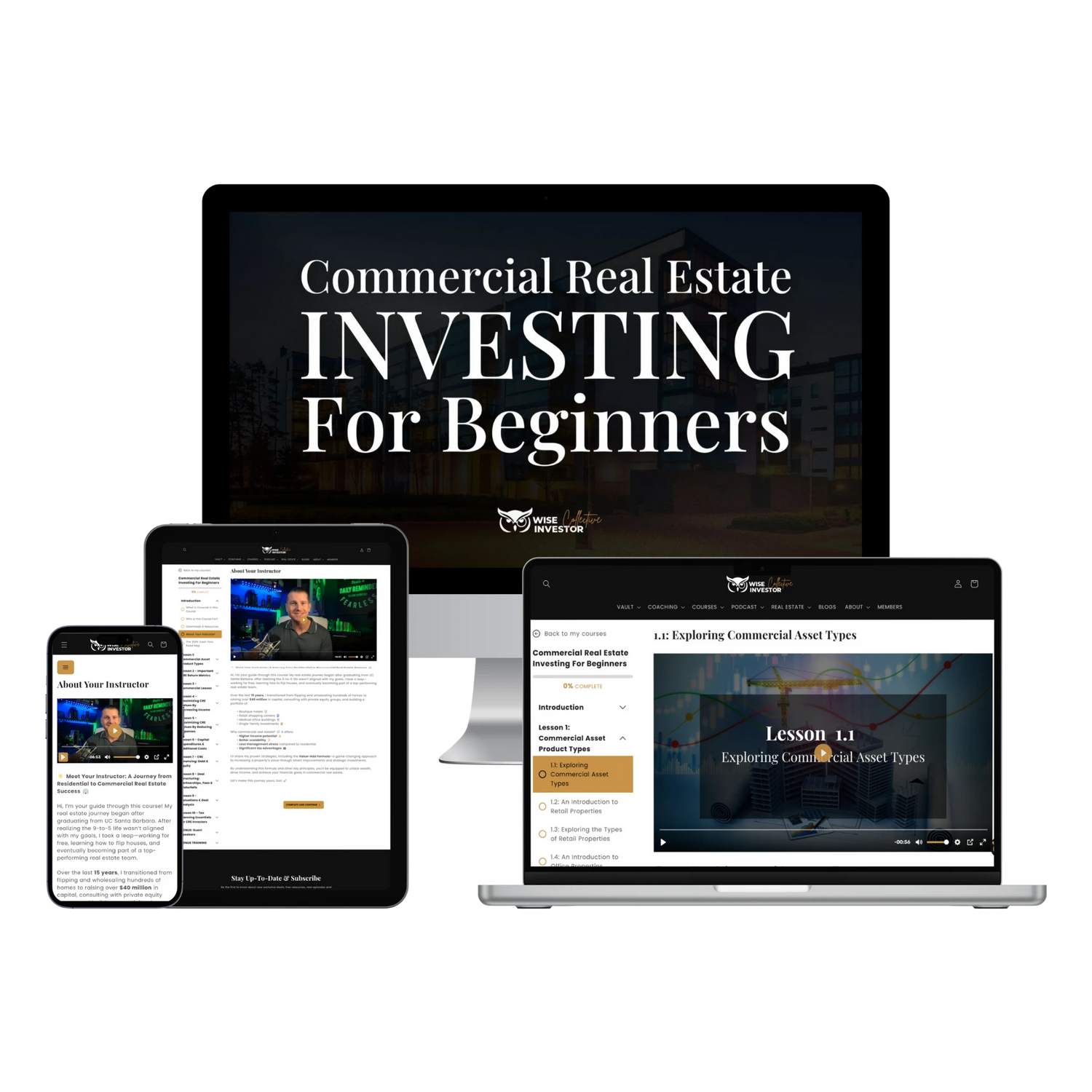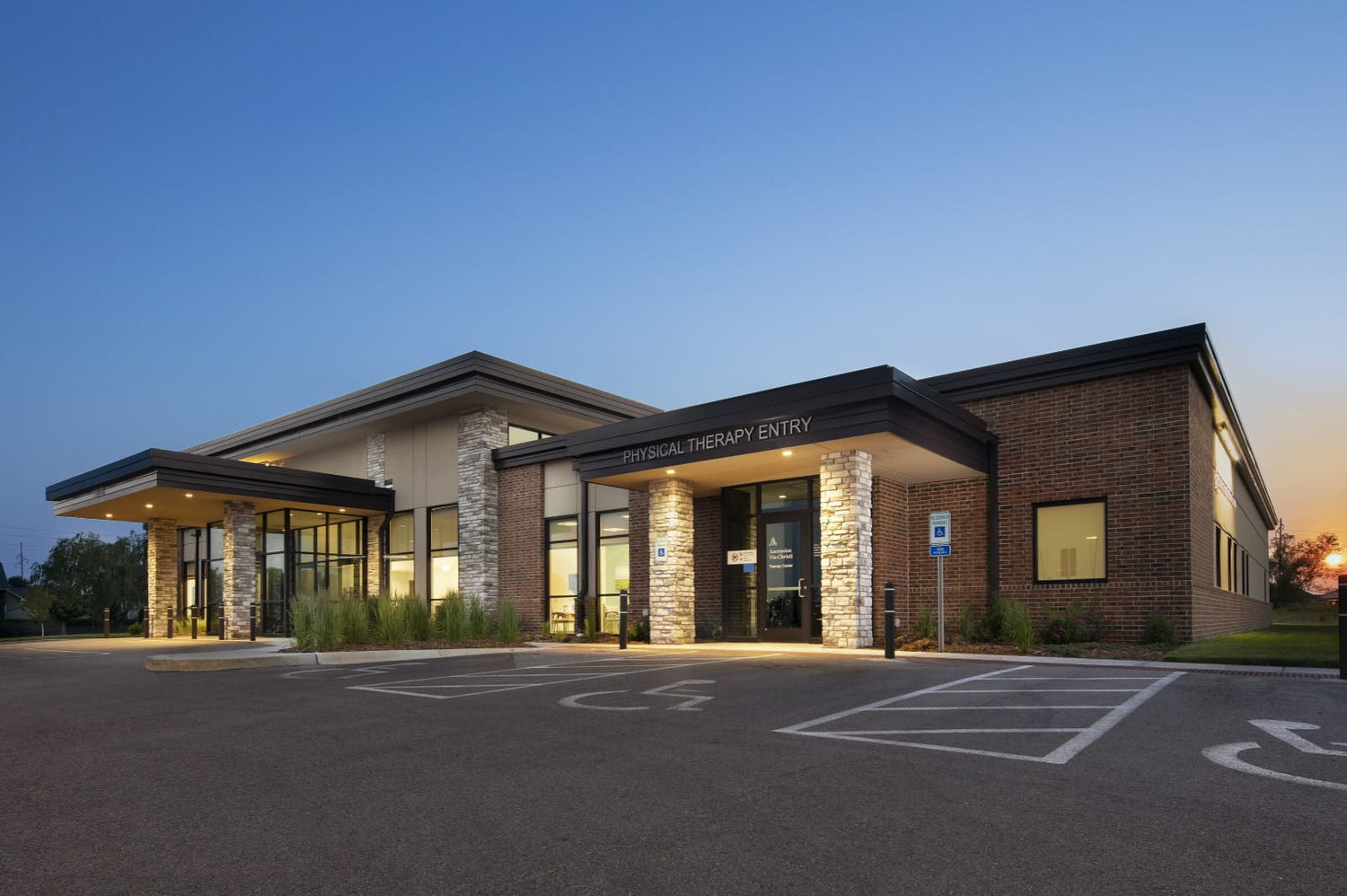
Table of content
- 1. Key Takeaways from Brad Johnson’s Journey
- 2. The Deal That Almost Broke Him
- 3. Why Mobile Home Parks? The Hidden Alpha
- 4. How to Underwrite a Mobile Home Park in 2025
- 5. Structuring the Capital Stack
- 6. Real-Life Wins & Outcomes
- 7. Expert Edge: Operational Alpha > Cap Rate Compression
- 8. From Wall Street to Evergreen Wealth: Brad’s Conclusion

What if walking away from a million-dollar bonus could unlock a billion-dollar life?
That’s exactly the decision Brad Johnson made when he traded Wall Street boardrooms for mobile home parks—leaving behind golden handcuffs for financial freedom, family time, and a portfolio now topping $3.3 billion in real estate acquisitions.
In this episode of the Millionaire Mindcast, Brad opens up about:
- The “aha” moment that led him to mobile home parks.
- His first deal that fell apart at the finish line and how he rebounded.
- The structure, strategies, and mindset behind his long-term wealth.
In this blog, you’ll discover:
- Why mobile home parks might be the most overlooked wealth-building asset in real estate.
- How to find, underwrite, and structure deals in a rising-interest-rate world.
- A playbook of action steps for beginners to advanced investors.

Key Takeaways from Brad Johnson’s Journey
- "I gave up a Wall Street bonus to see my son awake"—and never looked back. Brad prioritized time freedom and family over short-term income.
- His first deal died three weeks before closing—but the next made millions. Learning resilience from early failure proved crucial to his success.
- Seller financing isn't just creative—it's an alignment of interests. It protects both parties and can be a powerful alternative to traditional lending.
- Brad’s team seeks operational alpha, not cap rate compression. He adds value through professional management, not speculation.
- Mobile home parks offer recession-resilient cash flow—and real impact. They fill a vital role in affordable housing, generating both profit and purpose.

The Deal That Almost Broke Him
“In the episode, I shared how I nearly lost it all on my first mobile home park deal…"
Brad’s first mobile home park deal fell apart three weeks before closing. After cold calling dozens of lenders and finally securing financing, the seller pulled out—taking a higher offer. It was a gut-punch moment that cost him time, money, and confidence.
Yet, Brad framed it as an invaluable experience:
"Plan on the first year not going as smoothly as you think it might."
This setback forced him to rethink how to move faster and structure deals more competitively—a foundational shift in how he approaches every opportunity today.
Your Playbook:
Beginners:
- Prepare mentally and financially for deal fallout. Deals often fall apart at the last minute.
- Maintain a healthy due diligence reserve to cover third-party costs even if a deal collapses.
- Stay persistent. First deal heartbreak is common but survivable.
Intermediates:
- Build a reliable bench of lenders, legal contacts, and escrow agents.
- Use clearly defined contingencies and timelines in your LOIs and contracts.
- Develop pre-screened lender relationships to avoid delays.
Advanced:
- Create a system for rapid deployment: contracts, teams, capital.
- Build rapport with brokers by being the buyer that always closes.
- Negotiate flexibility in financing timelines to avoid seller loss.

Why Mobile Home Parks? The Hidden Alpha
Brad noticed something odd during his Wall Street days: manufactured housing loans had the highest yields and lowest default rates. That combination is almost unheard of in financial markets.
"It was a lightbulb moment. That shouldn't exist. So let's dig into that."
Unlike traditional real estate assets like multifamily or retail, mobile home parks offer a unique risk-reward profile. There is massive, inelastic demand for affordable housing, particularly among those earning less than $70K/year, and a severe shortage of supply. Most cities restrict or outright ban new mobile home park development.
What Makes Mobile Home Parks Different:
- Limited competition: Barriers to entry are high due to zoning challenges.
- Sticky tenants: Since most tenants own their homes, turnover is minimal.
- Upside potential: Many parks are poorly managed and underpriced.
- Community impact: They offer a dignified path to homeownership.
Your Playbook:
Beginners:
- Learn the difference between trailer parks and high-quality mobile home communities.
- Research the mobile home park "star" rating system to evaluate opportunities.
- Visit local parks and talk to tenants and owners.
Intermediates:
- Compare park lot rents to local apartment rents to assess affordability gaps.
- Look for parks with deferred maintenance but solid tenant bases.
- Focus on cities with pro-development attitudes and strong working-class populations.
Advanced:
- Build a regional acquisition pipeline with boots-on-the-ground partners.
- Create tenant retention programs and quality-of-life upgrades.
- Target owner-operators nearing retirement for off-market opportunities.

How to Underwrite a Mobile Home Park in 2025
Traditional metrics like cap rate often mislead in mobile home parks. Many mom-and-pop operators hide cash flow to minimize taxes, skewing the numbers.
Brad instead underwrites to stabilized cap rates based on professional management and realistic expenses.
"We want to get to a 7-cap by year three."
This approach helps investors see the real picture and target solid, sustainable returns.
Green Flags:
- Room for rent increases.
- Seller willing to finance.
- Tenants own their homes (reduces maintenance costs).
- Opportunity for expansion or repositioning.
Your Playbook:
Beginners:
- Start with simple deal calculators that project conservative rent growth.
- Understand key metrics like DSCR (Debt Service Coverage Ratio) and cap rate.
- Tour parks in person and speak with existing residents.
Intermediates:
- Audit utility systems: private septic vs. city sewer, submetering opportunities.
- Evaluate expenses: management, taxes, insurance, maintenance.
- Adjust underwriting based on a 1-3 year business plan.
Advanced:
- Develop pro forma scenarios to stress test deal sensitivity.
- Use bridge loans with refinance plans tied to NOI milestones.
- Model IRR based on refinancing rather than sale.

Structuring the Capital Stack
With interest rates high and lender scrutiny tight, Brad focuses on flexibility and alignment in his deal structures.
"We're having a hard time getting above 50% leverage right now."
He’s leaning into seller financing, pref equity, and over-equitizing to make deals work today with the plan to refinance later.
Structuring Tips:
- Think of seller financing as an LP investment by the seller.
- Avoid short-term balloon loans without a realistic refinance path.
- Use capital reserves to offset operational surprises.
Your Playbook:
Beginners:
- Use seller financing to enter with low capital and less bank pressure.
- Understand the difference between debt, equity, and preferred equity.
Intermediates:
- Raise funds from your network in exchange for LP equity shares.
- Include refinance-based investor payout models.
Advanced:
- Blend equity layers for optimal returns: GP, LP, and pref.
- Secure soft commitments from institutional capital for larger deals.
- Build performance-based comp structures for operators.

Real-Life Wins & Outcomes
"We bought a 500-pad park for $10M and sold it for $20M in two years."
This lightning-fast win came from Brad’s strong broker relationships and readiness to act. No over-modeling, no over-thinking—just decisive action.
Another milestone: Selling his 22-park portfolio post-COVID, proving his ability to exit cleanly and profitably in tough times.
Your Playbook:
Beginners:
- Document every lesson and challenge from your first deal.
- Build a simple, compelling case study to show lenders or partners.
Intermediates:
- Host webinars or newsletters sharing your deal results.
- Use past wins to raise capital for your next fund.
Advanced:
- Create a "wins deck" with detailed returns and timelines.
- Get testimonials from investors and community members.
- Use these assets to scale into new regions or asset classes.

Expert Edge: Operational Alpha > Cap Rate Compression
Brad focuses on increasing cash flow through smart operations rather than gambling on appreciation or interest rate declines.
"Too many investors are tourists. This is about long-term cash flow."
He reinvests into his parks to improve tenant experience, increase rent justify, and reduce turnover.
Operational Moves:
- Upgrade infrastructure: paving, lighting, signage.
- Enforce lease compliance for better community culture.
- Add amenities like storage or RV parking.
Your Playbook:
Beginners:
- Track all expenses with a property management software.
- Build a checklist for ongoing maintenance and inspections.
Intermediates:
- Develop KPIs for property managers (e.g., collections %, occupancy).
- Create tenant satisfaction surveys and reward feedback.
Advanced:
- Run quarterly operational audits.
- Use benchmarking to evaluate performance across your portfolio.
- Apply continuous improvement models to reduce cost and increase retention.

From Wall Street to Evergreen Wealth: Brad’s Conclusion
Brad Johnson didn’t find success overnight. His path was built on failed deals, risky leaps, creative structuring, and relentless commitment to operational excellence.
He left Wall Street not because he hated the money, but because he wanted freedom. And he found it in mobile home parks—a vehicle that rewards long-term thinking, community impact, and the courage to do things differently.
His strategy emphasizes:
- Resilience in the face of early failures.
- Creative structuring to unlock deals.
- Operational mastery to build enduring cash flow.
- Impact-driven investing for sustainable legacy.
"What else are we going to do—play golf all day? I'm building something that lasts."
Whether you're new to real estate or managing a portfolio, Brad's playbook is a masterclass in long-term thinking, creative deal-making, and purpose-driven wealth. The future of real estate belongs to those who combine heart with hustle.
Stay Connected & Learn More
🎧 Listen to the full podcast episode here: LINK
👁️ Watch the full episode here: LINK
📩 Be part of the discussion! Join our Facebook group: LINK
📅 Book a coaching call w/ Matt Aitchison: LINK
🚀 Enroll in our EXPERT-led courses: LINK
Recent posts
 Commercial Real Estate Investing
Commercial Real Estate Investing
How to Attract Investors and Raise Capital for Commercial Real Estate the Right Way | Randy Smith
 Commercial Real Estate Investing
Commercial Real Estate Investing




